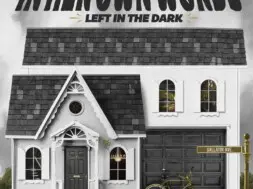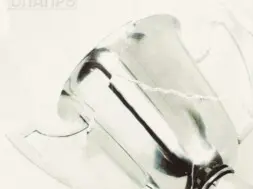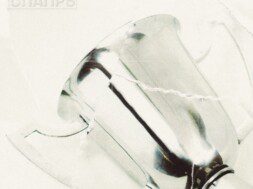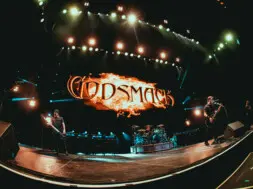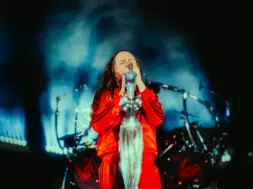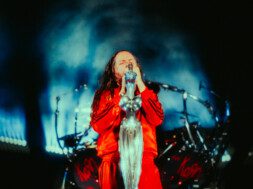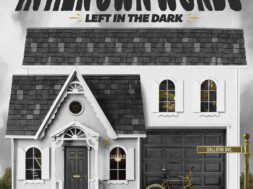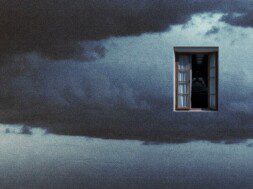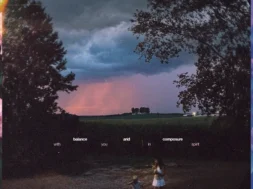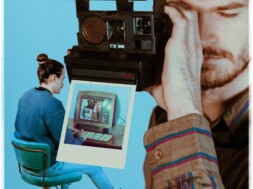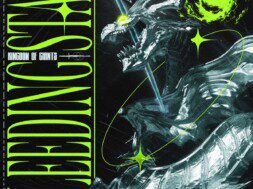
2011 was a weird, weird year for music. Its best rock record was released by a band that wouldn’t exist fourteen months later; Adele went from recognisably gifted soul songstress to the biggest artist of the 21st century. A young man named Abel Tesfaye, meanwhile, would dub himself The Weeknd and put out three – three – modern classic mixtapes worth of music that earned him comparisons to the King of Pop and revolutionized contemporary R&B in the process. Even the weakest of the trilogy (Thursday) was essential listening, and as a whole was an unprecedented display of brilliance across such a broad amount of music. It’s unlikely that the genre, or perhaps even popular music at all, will see the same again.
Then came Kiss Land. The first official, commercially available album by The Weeknd, it was such a dramatic comedown that wondering whether or not this was the same guy who made “Wicked Games” wasn’t difficult. The Trilogy was so vast and so masterful that it was impossible to write off as a fluke, but it nonetheless took an easily derided but frankly appropriate slot on the Fifty Shades of Grey movie soundtrack for the mainstream to really take notice of Abel’s abilities. All eyes now look to him as the much-lauded next big thing – Beauty Behind the Madness has a metric ton of pressure on it to perform. The good news is it does – and not for the reasons one would expect.
“Can’t Feel My Face” was the first real indicator of the transformation. Both Fifty Shades cuts, the opulent and luxurious “Earned It” and gorgeously produced if too focused on female genitalia “Often”, had the skeletons of pure pop songs but were too rooted in the old Weeknd lasciviousness to really tap the frills-free entertainment vein. On “Can’t Feel My Face”, though, Tesfaye dives headfirst into the Michael Jackson comparisons and comes out with a dance floor cruise missile of a track that sits at the middle of ‘Madness’ like an 80s-worshiping monolith. It’s a masterstroke, and he repeats the trick on the perhaps even better surefire future single “In the Night”. Again, this is weightless radio music far removed from The Weeknd of old, but it hits the same ecstatic heights.
The album doesn’t root itself there though – it doesn’t really root itself anywhere, and over the course of more than an hour throws its weight into every abrupt left turn and odd stylistic choice with gusto. Things get suffocating as the lava flow of bass pours into the chorus of “The Hills” and ignites the downbeat album highlight; “Shameless” builds from delicate acoustic guitar and Tesfaye’s immaculate tenor to a breathtaking guitar solo that could well be his equivalent of the Van Halen spot on “Beat It”. What’s most surprising is that the weakest points of Beauty Behind the Madness are those that sound most like his earliest work. “As You Are” is a near six-minute exercise in awkward compromise between The Weeknd of old and new, suffering similar problems in its bloat to “Acquainted”, which is for the most part dazzling but unravels into a wholly unnecessary Trilogy-esque denouement.
Such is Tesfaye’s confidence that the guest musician tracks are all left to feel somehow driven by them. “Losers”, featuring an understated Labrinth, starts slow but ignites upon the arrival of twinkling percussive synthesizers, and the moody ode to addiction “Prisoner” is as sultry as one could expect from a Lana Del Rey/Weeknd crossover. It boasts a killer chorus, but isn’t as consistently excellent as his prior duet with Ariana Grande (“Love Me Harder” could easily have slotted into ‘Madness’, to be honest). The biggest surprise is the gunslinger blues of “Dark Times”, where Ed Sheeran takes prominence, his earthy vocal given the perfect foil in Tesfaye’s liquid croon.
Even that is made to seem predictable by grandiose final track “Angel”, the only one to merit a runtime over five minutes. Backed by huge reverb guitar chords and even a choir in a closing moments, and joined by an anonymous female counterpoint who sounds more than a tad like Lights but is in fact one Maty Noyes, Tesfaye drops a bombshell – a lovelorn lyric which appears wholly sincere. His obsession with women has always been soaked in lurid sexuality and intrinsically linked to a hand-in-hand second addiction, drugs (“Can’t Feel My Face” is Exhibit A), but on “Angel” he genuinely appears heartbroken. It’s one hell of a way to end an album.
Beauty Behind the Madness is not a 10/10 classic in the same way House of Balloons is – it’s too sprawling, too intent on exploring myriad expressions of its creator’s talents to be as consistently perfect as that first taste of The Weeknd’s brilliance. As a 2015 mainstream pop album, though, it is almost without peer, Catherine-wheeling between styles and daring the listener to hold on for the ride. There is so much going on that it’s difficult to absorb in one go, and too much to represent a Thriller for the 21st century. But as much as he revels in the MJ comparison at times here, The Weeknd was never attempting to create that, and what he has crafted is, hopefully, a delectable entry point to a legacy that’s on a far grander scale than the Trilogy could ever conjure up.


